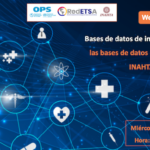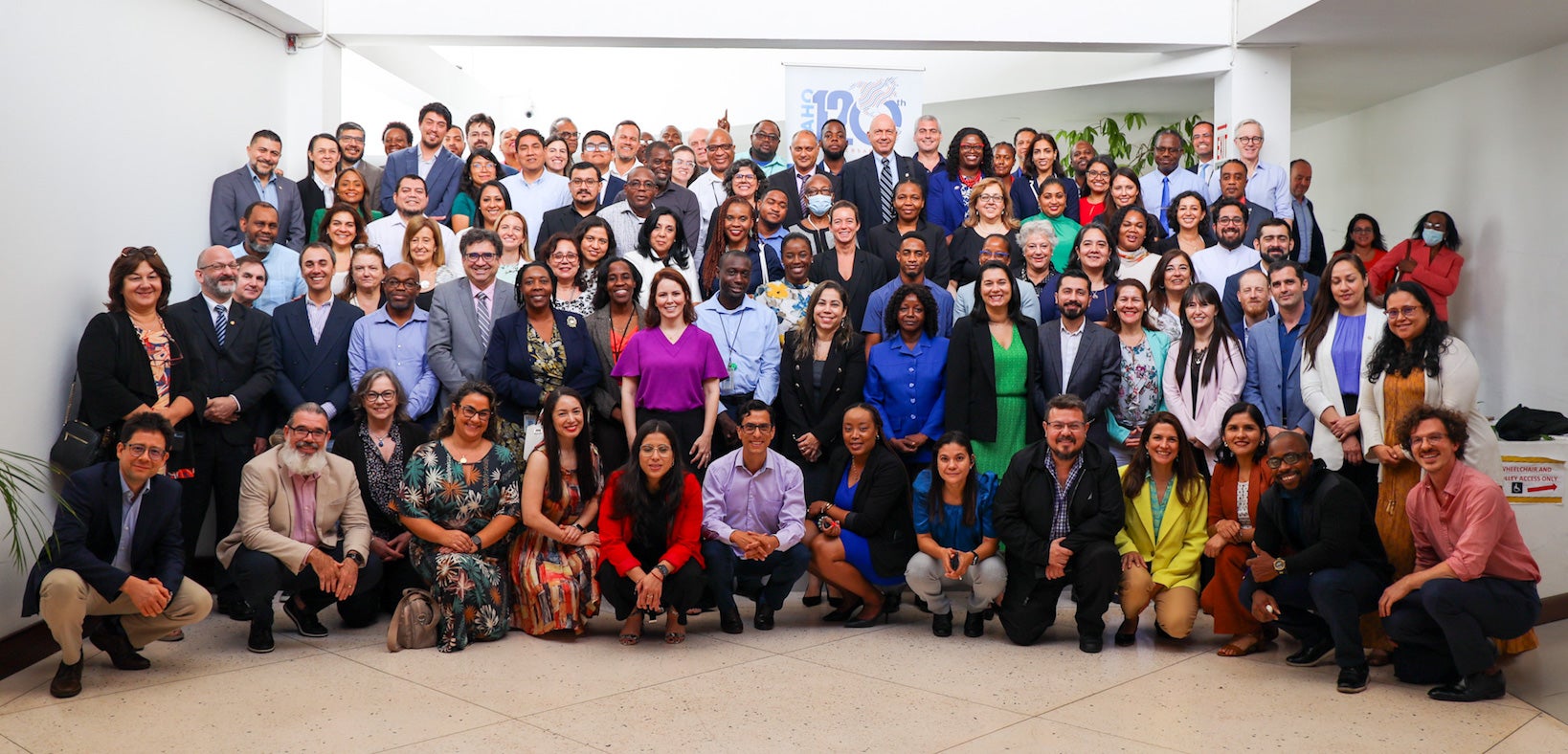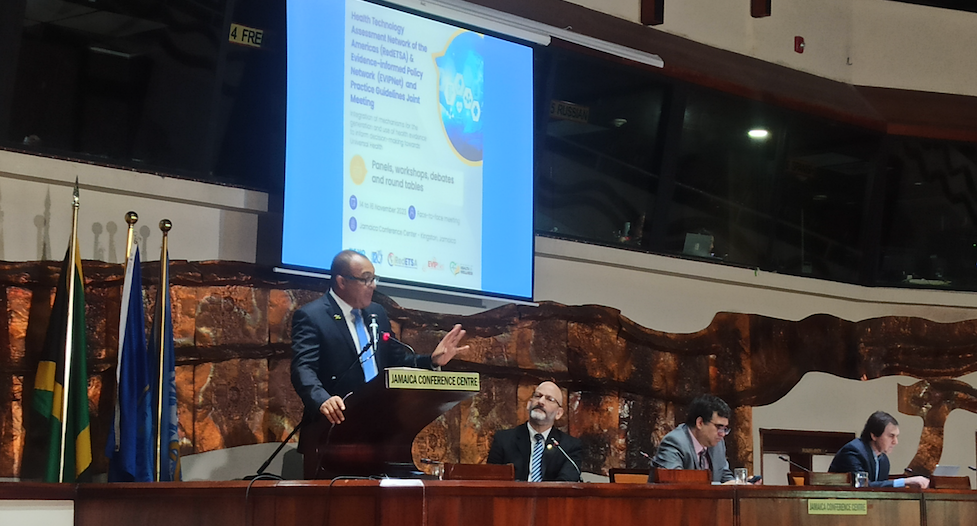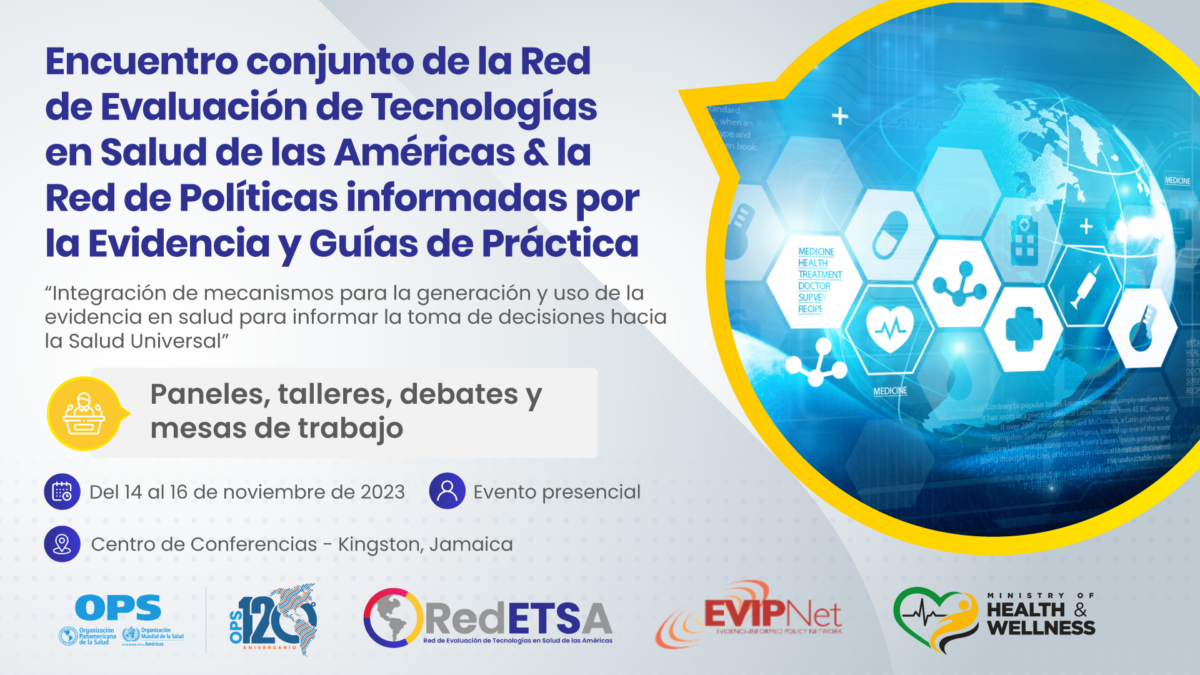
Upcoming Webinar – 37th Edition: COST-EFFECTIVENESS THRESHOLDS: Optimizing the allocation of health resources in the Americas
August 3, 2023
Next Webinar – 39th Edition: “STD reporting databases: the RedETSA and INAHTA databases”
November 28, 2023Kingston, November 14 to 16, 2023 (PAHO) – The Pan American Health Organization (PAHO), through its Departments of Innovation, Access to Medicines and Health Technologies (IMT) and Evidence and Intelligence for Health Action (EIH) held the joint meeting between the Health Technology Assessment Network of the Americas (RedETSA) and the Evidence-Informed Policies Network of the Americas (EVIPNet). The Minister of Health and Welfare of Jamaica, Dr. Christopher Tufton, and the PAHO/WHO Representative in Jamaica, Bermuda and the Cayman Islands, Mr. Ian Stein, opened this joint meeting, attended by more than 150 participants from 21 countries and 61 institutions.

At the opening, Minister Tufton expressed that “this is a historic event for Jamaica as a new member of RedETSA” and also mentioned that the Ministry of Health “continues to explore best options available to effectively and successfully address the most pressing public health challenges facing the Region, including non-communicable diseases (NCDs) and vaccine hesitancy, among others.” Mr. Ian Stein mentioned that “the collaborative meeting is important and represents a new frontier in the health sector in the Americas, especially for a small island developing state like Jamaica, which is on the path to achieving Universal Health.

This meeting served to identify successful experiences of integrating mechanisms for the generation and use of health evidence to inform decision-making towards Universal Health; advance the institutionalization of health technology assessment (HTA) mechanisms to inform decision-making for the incorporation of health technologies into health systems and implement monitoring of technologies and policies; present and validate regional resources and tools for the adaptation/development of evidence-informed practice guidelines; and identify synergies and explore technical areas of collaboration between RedETSA, EVIPNet and the regional practice guidelines group, in addition to other networks and groups that support the development of policies and practices informed by scientific evidence.
The event had a day of open sessions with panels and round tables in which participants shared experiences; half a day of workshops on economic evaluation, communication for evidence-informed policies and introduction to the use of GRADE; and finally, a day reserved for closed meetings for each network. The joint meeting facilitated beneficial partnerships, exchange of ideas and in-person conversations.

RedETSA was created in June 2011 and currently has 42 member institutions from 21 countries. Its objective is to strengthen and promote the STD process in the Americas, supporting the exchange of information and knowledge, to support decision-making on the incorporation and use and replacement of health technologies. For more information visit: https://redetsa.bvsalud.org
EVIPNet is a network established by the World Health Organization in 2006 to promote the systematic use of data and research evidence in health policymaking. EVIPNet Americas has supported countries since 2007, promoting national mechanisms to facilitate the regular use of research evidence; provide members with a reliable source of scientific evidence; and for the best use of regional resources through the development of multinational networks using local networks with similar organizational dynamics. Visited: https://www.who.int/initiatives/evidence-informed-policy-network

